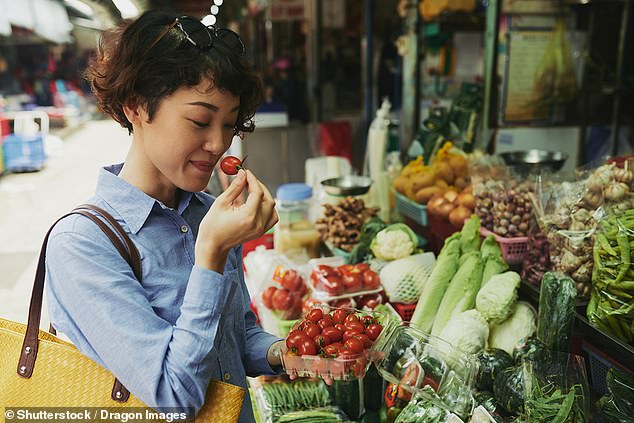
A can of spaghetti sauce or a mixed salad could be next in line for a huge price bump.
A decades-old trade pact that kept imported tomatoes cheap is about to expire — threatening to significantly raise prices on the staple ingredient.
Starting July 14, fresh tomatoes brought into the US from Mexico will face a new 17 percent tariff, after the Commerce Department announced plans to let the Tomato Suspension Agreement lapse.
The move ends a 29-year truce between the two nations that once promised to protect American farmers while keeping grocery prices in check.
Now, grocery stores could be caught in the middle.
‘There’s no scenario where I can absorb those tariffs,’ Rodolfo Spielmann, CEO of NatureSweet, America’s largest tomato distributor, told Bloomberg.
‘The margins are not high enough.’
He expects a price jump of around 10 percent across his tomato lineup, which is sold at retailers like Walmart, Kroger, Whole Foods, and Albertsons.

Producers are warning that a federal policy is about to make tomatoes a lot more expensive
NatureSweet’s most iconic product — its Cherub grape tomatoes packaged in a bulbous plastic container with highlighter yellow stickers — has become a grocery aisle staple.
But like most tomatoes in US supermarkets, it’s grown south of the border.
Mexico accounts for about 90 percent of America’s tomato imports, and nearly three-quarters of all fresh tomatoes sold in the US are imported.
The original agreement was struck in 1996 after the US accused Mexican producers of product ‘dumping,’ or, selling a surplus of tomatoes at an artificially low price. The pact intended to empower American farmers.
The deal included price floors and random inspections. US officials have renegotiated the pact several times, including in 2019 during the first Trump administration.
‘It hasn’t worked,’ Robert Guenther, the executive vice president of the Florida Tomato Exchange, told Bloomberg.
‘You’ve seen is a consistent reduction in the market share of US tomatoes.’
Republican lawmakers from Florida, a major tomato-producing state, welcomed the end of the agreement in an open letter.

Kroger is one of the major grocery stores that sells NatureSweet’s popular tomato products

American farmers have complained that a decades-old pact was ineffective at keeping jobs in the US
‘The termination of the suspension agreement will allow US tomato growers to compete fairly in the marketplace,’ a letter from state Senators, Rick Scott and Ashley Moody, said.
American farmers have increasingly cut jobs in the tomato industry.
But alarm bells are also ringing for industry analysts.
The US has not produced enough tomatoes for domestic consumption for several decades.
A supply shock for tomatoes could push grocery inflation up even higher after years of increased food prices.
The looming tariff underscores a broader Republican trade dilemma — trying to lower prices for consumers while boosting domestic production.
For now, shoppers may be the ones footing the tomato bill.






